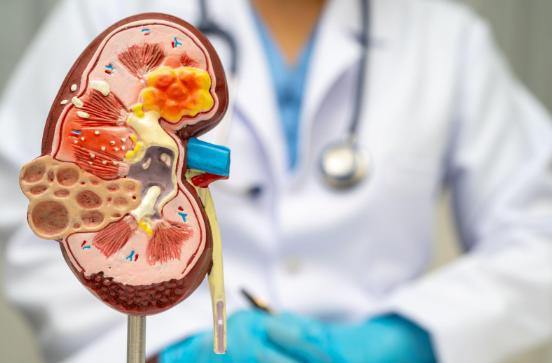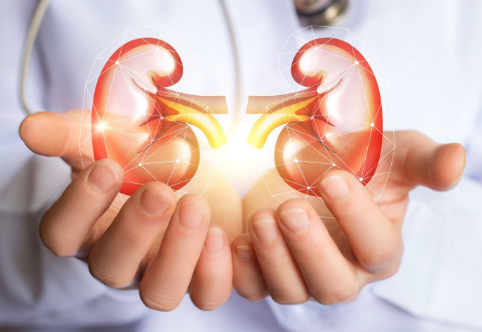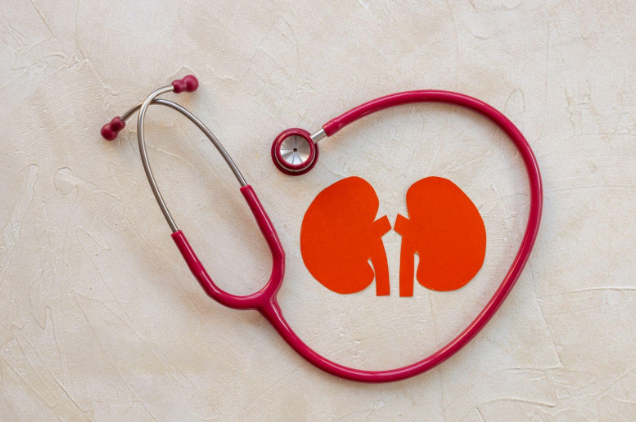Are Kidney Diseases and Anemia Related?

Kidney disease and anemia are two serious health issues, but did you know that they’re closely connected? If you or someone you know is dealing with kidney problems, understanding the link between kidney disease and anemia can help you recognize symptoms, improve your quality of life, and even make sense of your doctor’s recommendations.
What Is Anemia?
Anemia happens when your body doesn’t have enough healthy red blood cells to carry oxygen to your tissues. When cells and tissues don’t receive enough oxygen, you might feel tired, weak, short of breath, or dizzy. The most common type of anemia, iron deficiency anemia, occurs due to a lack of iron, which your body needs to produce hemoglobin, the part of red blood cells that carries oxygen. However, anemia can have many causes, including chronic illnesses like kidney disease.
What Is Kidney Disease?
Kidney disease, or chronic kidney disease (CKD), means your kidneys are not working as well as they should. The kidneys filter waste from your blood and balance fluids and minerals in your body. They also produce hormones that help with other tasks such as controlling blood pressure, making red blood cells, and keeping your bones healthy. When your kidneys are damaged and unable to function properly, these processes slow down or stop altogether, leading to various health complications, including anemia.
The Link Between Kidney Disease and Anemia
Kidneys help produce a hormone called erythropoietin (EPO), which is what tells your bone marrow to make red blood cells. When you have kidney disease, particularly in the later stages, your kidneys might not produce enough EPO, which leads to a reduced number of red blood cells—in other words, anemia.
As kidney disease progresses, the risk of anemia increases. Nearly all individuals with end-stage kidney disease (when the kidneys are functioning below 15%) develop anemia. This strong connection means that if you’re managing kidney disease, monitoring your blood health becomes an important part of your treatment plan.
Why Kidney Disease Leads to Anemia
Several factors explain why anemia is so common among those with kidney disease:
Reduced EPO Production
As kidney function declines, so does the production of EPO, which is necessary for red blood cell production. The fewer red blood cells produced, the less oxygen is transported in your body.
Iron Deficiency
People with kidney disease are often at risk of iron deficiency, which is needed for producing hemoglobin. This deficiency can result from a reduced ability to absorb iron, increased blood loss (particularly for patients on dialysis), or the body’s response to inflammation.
Inflammation
Chronic kidney disease often causes inflammation in the body, which interferes with iron metabolism and the body’s ability to use stored iron to produce hemoglobin effectively. Inflammation is common in chronic diseases and creates a further barrier to producing enough red blood cells.
Blood Loss from Dialysis
Patients undergoing hemodialysis for kidney disease can lose small amounts of blood during treatments. Over time, this can contribute to anemia.
Signs and Symptoms of Anemia in People with Kidney Disease
Anemia can worsen the symptoms of kidney disease, and when both conditions are present, they can create a challenging cycle. Here are some common symptoms to look out for if you have kidney disease and may be developing anemia:
- Low red blood cell count means less oxygen is delivered to your muscles and organs, causing you to feel more tired or weak.
- When tissues and organs aren’t receiving enough oxygen, your body compensates by increasing your breathing rate, making you feel short of breath.
- Low hemoglobin levels can cause your skin to look paler or even slightly yellow.
- Reduced oxygen flow to your brain can make you feel dizzy or lightheaded.
- Poor circulation from low red blood cell count can make it difficult for your body to maintain warmth in extremities.
- Severe anemia forces your heart to work harder to circulate oxygen, which can lead to heart-related symptoms.
Diagnosing Anemia in People with Kidney Disease
If you have kidney disease, your doctor will likely keep an eye on your hemoglobin and hematocrit levels, as they are key indicators of anemia. A simple blood test can measure your red blood cell count, hemoglobin, and EPO levels, along with checking for iron levels to identify iron deficiency. Early diagnosis and monitoring to address anemia can greatly improve how you feel and prevent additional strain on your organs.
Managing Anemia When You Have Kidney Disease
The good news is that there are treatments available to manage anemia in people with kidney disease. The approach depends on the underlying cause and severity of your anemia.
Here’s a look at common treatments and strategies:
- Erythropoiesis-Stimulating Agents (ESAs): ESAs are medications that help when it comes to stimulating the production of red blood cells by mimicking the effects of EPO. These drugs are often used in people with chronic kidney disease to boost their red blood cell count.
- Iron Supplements: If iron deficiency is contributing to your anemia, your doctor may recommend iron supplements, which can be taken orally or intravenously. Iron supplements help increase hemoglobin levels, which supports red blood cell production.
- Blood Transfusions: In severe cases of anemia, a blood transfusion may be necessary to increase red blood cells rapidly. This is typically reserved for those with very low hemoglobin levels who need immediate relief.
- Dietary Adjustments: Eating a diet that has lots of iron, vitamin B12, and folate can support red blood cell production. Foods like lean meats, dark leafy greens, beans, and fortified cereals are all good sources of iron and can be beneficial if your diet allows for these foods.
- Managing Inflammation: Since inflammation can interfere with iron metabolism, managing chronic inflammation through lifestyle choices or medications may help in controlling anemia.
Our team at
Metropolitan Kidney Centers can help our patients with both kidney disease and anemia. If you want experienced, compassionate care,
reach out to us today!















